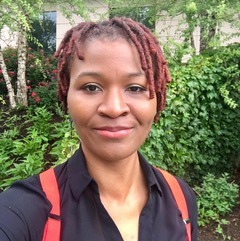I felt weird.
I craved stimulating conversations, but whenever I met potential friends, I asked them to brace themselves before sharing my “weird” interests—existentialist philosophy, classical music, permaculture, linguistics, and steampunk. Often, before they could respond, I anticipated their responses and preempted them: “I know, you think I’m weird.” This left most interactions feeling awkward or stilted.
So I remained aloof. I believed myself so dissimilar to everyone around me that I would never be understood, making connection impossible. And of course, I disdained small talk.
This belief that I was weird and different was a strong part of my identity, until I discovered something: I’m actually not weird.
Self-Othering
This was a monumental discovery, because I had spent a lifetime othering myself. While othering generally refers to a person defining someone else as outside of their group, I turned this inside out: a systematic, self-sabotaging practice of finding ways to isolate myself from the group. Somehow I had developed skill at emphasizing differences and separation rather than similarities and connection.
Somehow I had developed skill at emphasizing differences and separation rather than similarities and connection.
When I told someone that I loved existentialist philosophy and prefaced it with “You may think this is weird,” my goal—though I didn’t consciously recognize this at the time—was to convince them to agree. If instead they asked if I was more into Kierkegaard or Nietzsche, surprisingly, I was uneasy. I felt somehow my interest in philosophy was patently different from anyone else’s. Commonality threatened my deeply internalized apartness. So to protect it, I kept dozens of stories in the back of my mind to reinforce my differences.

If confronted with a potential true connection, I recoiled. I started looking for a route back to my comfort zone of believing I was the weirdest person in the room. If I found myself among people who shared my interest in classical music, rather than focus on similarities, I’d say, “Actually, I like only Baroque period music in the key of D minor. Isn’t that weird?” No matter how welcoming or suitable the environment, I crafted ways to exclude or differentiate myself. This, of course, limited opportunities to genuinely connect, reinforcing the cycle.
Seeing Ourselves as Others See Us
Eventually, however, I grew weary of the perpetual loneliness that followed me from childhood into adult life. I was ready to try something different, so I sought connection through groups, clubs, and online forums.
I thought my troubles were over when I connected over shared interests with a man from a local Meetup group. He self-identified as weird, enjoyed stimulating conversations, and also disdained small talk. Perfect!
Initially, I loved how our conversations launched straight into facts and details. We didn’t go through the agony of small talk—no “Where are you from?” or “How was your day?”
But although we shared many interests, the connection didn’t end up going so well. For starters, I couldn’t get a word in edgewise. His monologues about his interests exhausted me. Then there was his insistence on his weirdness—despite my repeated affirmation that we had plenty of similarities. I never thought he was weird; I just didn’t see a space to join in.
So I lost interest. After dozens of conversations, I knew nothing about him as a person outside of the fact that he was “weird”—or at least saw himself that way—and had deep knowledge surrounding a set of interests.
For the first time I asked myself, “Could this be how other people perceive me? Am I this self-focused and boring?”
For the first time I asked myself, “Could this be how other people perceive me? Am I this self-focused and boring?”
Finding Belonging
And so I decided to make some changes.
First, I reevaluated my “no small talk” policy. That failed friendship showed me that maybe a little small talk did have a place in conversation. Those seemingly pointless questions actually could be an opportunity to express curiosity about others and find points of connection.
Second, that relationship had also revealed to me that when people were talking about themselves, I wasn’t such a great listener. So I practiced curiosity by asking more questions to a larger variety of people—and listened to their replies. As I continued joining groups, I gradually met friendly, well-rounded people in unexpected places who demonstrated how to be passionate about their interests as well as excellent listeners. They showed genuine interest in others, not just in their shared areas of interest. This meant they could participate fully in their friends’ lives. These individuals served as positive examples, and I strove to practice what they modeled.
As I continued joining groups, I gradually met friendly, well-rounded people in unexpected places who demonstrated how to be passionate about their interests as well as excellent listeners.
Soon, I found that I was lifted from isolation and surrounded by fun, interesting people. Now that I had stopped letting “weird” be a substitute for true personality, I learned to be comfortable leaning into the parts of my personality that like-minded people related to.

Did my weirdness suddenly depart? No: as I opened to the fact that others did share things with me, I came to recognize that I was never especially weird. I just had a knack for emphasizing ways I was different from a group rather than similar. This was probably related to some unhealthy patterns I learned early in my life—but they were learned behaviors, and I was unlearning them.
Accepting the Invitation
The days have passed where I feel the need to wear weirdness as a shield. Instead, I see myself as part of an interconnected web of seven billion people. My life is enriched daily through stimulating conversations—many of which grew out of small talk. People are whole beings, and they are more layered than just a collection of interests. Sure, I’m an outlier in some ways, and I have some niche interests, but did I really believe that out of seven billion people, I’d never find others who share those niches?
Your people are out there. Accept the invitation to join them.




